Fed, White, and BlueFinding America with My Fork
Simon Majumdar is probably not your typical idea of an immigrant. As he says, “I’m well rested, not particularly poor, and the only time I ever encounter ‘huddled masses’ is in line at Costco.” But immigrate he did., Simon sets off on a trek across the United States to find out what it really means to become an American, using what he knows best: food
Simon Majumdar is probably not your typical idea of an immigrant. As he says, “I’m well rested, not particularly poor, and the only time I ever encounter ‘huddled masses’ is in line at Costco.” But immigrate he did, and thanks to a Homeland Security agent who asked if he planned to make it official, the journey chronicled in Fed, White, and Blue was born. In it, Simon sets off on a trek across the United States to find out what it really means to become an American, using what he knows best: food.
Simon stops in Plymouth, Massachusetts, to learn about what the pilgrims ate (and that playing Wampanoag football with large men is to be avoided); a Shabbat dinner in Kansas; Wisconsin to make cheese (and get sprayed with hot whey); and LA to cook at a Filipino restaurant in the hope of making his in-laws proud. Simon attacks with gusto the food cultures that make up America—brewing beer, farming, working at a food bank, and even finding himself at a tailgate. Full of heart, humor, history, and of course, food, Fed, White, and Blue is a warm, funny, and inspiring portrait of becoming American.
SIMON MAJUMDAR is a food writer, broadcaster, and author of Eat My Globe and Eating for Britain. He has recurring roles as a judge on Iron Chef, The Next Iron Chef, and Cutthroat Kitchen. The fine living correspondent for AskMen.com, he writes regular features for the Food Network website and was one of the voices behind the Dos Hermanos blog, which GQ called “Michelin starred food blogging.” He lives in Los Angeles, California.
Writer and TV host Simon Majumdar has written about the food he encountered as he traveled the world. He has written about the food of his native great Britain. Now the focus of his latest book He talks about the food of his newly adopted homeland. Prior to becoming a citizen he traveled across the country getting a feel for the culinary regions of his new home. We recently had the great pleasure of talking with Simon Majumdar about his new book Fed white and Blue.
Books About Food (BAF): One gets the feeling you almost had to lose yourself to find your American voice.
Simon Majumdar: I think so, in a way it’s kind of, I’ve described it to someone as being a bit like Gestalt therapy where they break you down and rebuild you, because coming to the notion of becoming an American in my middle years. I am still I guess at my core very much a British guy and so trying to figure out what being an American means rather than just living here as a resident I wanted to do it properly which is why I decided to come to that kind of year on the road and meeting as many people as possible
BAF: Gestalt. That’s a good way of putting it because one feels you were somebody who just really wanted to immerse yourself and just go wherever the tide would take you.
Simon Majumdar: I think so and not that I’m comparing myself as a writer ever, but one of my heroes is George Plimpton and he wrote those wonderful sporting books in the ’60s where he is a rather unlikely combatant for want of a better word with a wholly load of different sporting organizations whether it’s boxing or with the Brooklyn Dodgers or the Detroit Lions. He had this totally immersive way of doing things. It’s something that I’ve always found rather appealing. That’s why whenever I write these things and with this book particularly I really wanted to just kind of throw myself in and see what happened.
BAF: You really did immerse yourself whether it be the barbecue challenge or the meat processing plant or…
Simon Majumdar: Well I think with the meat processing it’s really almost, we consume so much meat in this country and I think people are very disconnected from the source of their food. I think it’s one of the things that I find most challenging when I talk to people. Even to the point sometimes if I show meat on my Facebook page when I’m preparing something and people are like, ooh, that’s yucky. And you’re going well, yeah, it doesn’t all come in plastic trays in the supermarket. Something with eyes and a face had to die for you to eat meat. I can live with that but I do think at the same time, and I’m not suggesting everyone needs to go as you said, needs to go to a processing plant, abattoir or whatever but I think certainly if I’m writing about food and I’m hunting I need to understand what happens in the process.
BAF: You approached it not as a newbie but from a point of view as somebody who has experience and education and knows what they’re talking about in this field.
Simon Majumdar: I’m a great believer in kind of modeling yourself after people who are terrific at what they do and I’m very lucky particularly in the TV world to work with some amazing people be it Alton Brown or Bobby Flay or Geoffrey Zakarian and what I find is consistent amongst all of those incredible people, Alex Guarnaschelli would be a perfect example, is what I call intellectual curiosity. They’re never afraid to say they don’t know something and to go learn. It’s something I find very, very attractive in human beings, if they go, I don’t know, but I’m going to go and find out and it’s something I’ve always tried to do.
BAF: It’s one of the few things maybe other than music that is universal to all cultures.
Simon Majumdar: Well music would exactly be the other one. I always said, I said about it in my first book, Eat My Globe, which really food saved my life when I went off around the world, but I always say to people if I’d have been able to play the guitar I might have gone around the world to make music with people. But I couldn’t, so food was my passion and my kitchen knives are like my instruments I guess and that’s what I use to connect with people and food has that ability. It’s not just about shoving stuff down your throat which sometimes again we kind of think of it, or a lot of people do and to me it just has so much more power. Almost again using religious terminology because I did actually study theology at university, it has an almost sacramental ability when you sit down and share food with someone. Something special happens and what that is I’m never sure but something different happens.
BAF: Even as a child you were a bit of a critic. Your mom made dhal soup and you asked if the store that sold the good lentils had been closed that day.
Simon Majumdar: It’s a combination of Bengali, my father is still with us, he’s a Bengali from Calcutta originally and he moved over to the United Kingdom to train as a surgeon and met my mother who was a nurse in a hospital in Wales and they married. But we moved to the North of England so I was raised in the North which is very kind of blue collar part of the world, mine and steel towns and well known for people being slightly gruff and not having as many filters. So that was part of it and then Bengalis by their nature are known for being very critical in a very polite way. I think that’s part of the British influence.
You will cook a wonderful meal for a Bengali person, wonderful salmon dish, and they’ll go, that was absolutely delicious. You must let me introduce you to my fishmonger. That’s a classic Bengali response to a meal. My brother, who’s very close to me, will go, that was a wonderful meal and then there will be a kind of minuscule pause and then he’ll be, but if I had one criticism, and then he’ll go on to list ten things that you could have done better in the most loving way. And I’m the same, so it’s kind of this ability to be kind of very polite but rather razor like critic as being inherent I think in me from the time I was a little boy and quite how my mother never strangled me I don’t know.
BAF: Did you views on food come into play because your parents appreciated the table?
Simon Majumdar: We always ate together. We always talked about food and in fact that dal soup, we call it in our family lifesaving dal and it is actually the dish that save my life. Back in 2006 my mother had died of leukemia and the business I was helping to run was failing and putting it quite bluntly I was suicidal and I was standing on the balcony of my beautiful apartment in London and I was ready to jump. It was really that serious and I don’t hide it because I think hopefully if anyone reads it, it’s a valuable lesson that rescues can happen.
The family in the apartment below were from the Middle East and I still remember they were cooking and I started smelling these incredible smells of roasted meat and whatever they were cooking and I would say semi-humorously, I got more hungry than suicidal so I decided to go and cook. I started making this lentil dal and I was doing what my grandmother taught me which was to dry toast the lentils in the pan before I started adding other ingredients to make them nuttier.
While I was doing that I found a notebook and in that notebook I had written all the things that I wanted to do when I turned 40. I had achieved most of them. I had run a marathon, I’d had my teeth straightened, I’d worn braces, I’d had a suit made, but at the bottom of that I found four words that I wrote and it just said, ‘go everywhere, eat everything’.
It really was just kind of an illuminating experience that I suddenly went, oh okay and the next day I quit my job and four weeks later or so I was on Bondi Beach in Australia at the beginning of the Eat My Globe journey. That turned into the book and that’s how I met my wife and that’s how I ended up coming to America to get married and becoming this rather unlikely U.S. citizen that’s described in the new book.
BAF: That’s an incredible story.
Simon Majumdar: It is, isn’t it? And then as much by accident as anything else I ended up on the Food Network and my life changed again.
BAF: Have your travels with regards to this book and the projects undertaken, has that changed you’re perception of America and being an American?
Simon Majumdar: It has, it definitely has. America, before I undertook this project and certainly before I became a citizen, was where I lived, and now as I think I say at the end of the book, now it’s home and there’s a big difference.
I think that this journey around the country really reinforced that, that this isn’t just a place where I happen to live, it’s a place where I want to be part of the process, whether voting or whatever it is. I think that’s the other side, now using the word we, as an American citizen, Americans find lots of, every possible ways to argue with each other. It doesn’t matter whether it’s guns or religion or you know, politics or any way and what I’ve found though certainly traveling around is that actually at the soul of it people in the United States are just genuinely good people and food is a great way of unifying that and getting over some of those problems. I jokingly say that it’s very hard to have an argument with someone when you’ve got a mouthful of ribs.
It convinced me that this is an extraordinary country with 50 different countries in one in terms of its environments and its food and what it’s also convinced me is that this is now I genuinely think the most exciting time in American cuisine that I can ever remember and I’ve been coming here for maybe just over 30 years I think. I genuinely think it’s one of the most exciting times for food.
BAF: Certainly There are some interesting things going on and the new talents that are emerging and the new appreciation for regionality.
Simon Majumdar: I think the regionality is absolutely one of the main things, and I think the other thing is the waves of immigration. What’s happening is you have the first wave of immigration that tends to cook the more traditional foods from their country and it often tends to be found primarily in the home but then as you get second generation and even third generation you find people who are then using local ingredients and fusing that, I’m not a big fan of the word fusion but fusing that with some of the more traditional takes and creating incredible cuisine.
So now you’re finding for example in Texas a combination of Vietnamese food with Tex-Mex and you’re getting boiling crab with Vietnamese flavors. Out here in LA we’re getting a new wave. My wife is Filipino-American and we’re getting a new wave of these terrifically talented young chefs, young men and women who are just cooking incredible food and they’ve all often been trained to very high levels in great restaurants but still have a passion both for their region and for their cultural origin whatever that may be. You’re seeing that particularly right now with barbecue being taken in all kinds of interesting directions and that’s not to decry wonderful traditional barbecue which I adore and I cook on a barbecue team every year but just that people are trying to see where they can take it. I think that’s kind of what’s happening in food around the country now, it’s people are just trying to see where they can go and I think we’re genuinely developing this great American cuisine.
If you can say it’s an upside, but it was one of the upsides of the economic downturn that a lot of young chefs, young men and women couldn’t afford to stay in New York, Chicago, LA so they were returning to their hometowns and taking their skills with them and than rediscovering their passion for their local ingredients and turning that into something that’s I think very, very special indeed.
BAF: How were you able to cull down the selection of stories?
Simon Majumdar: What I tended to do with this is as you know, having read the book it is episodic by nature. I wrote probably about another ten episodes of things that happened. Going to Louisville and being taken to the Kentucky Derby and picking the winner or I was down in Florida and hung out with a Native American from the Miccosukee Tribe and who I went out on their air boats and hunted for alligators and garfish and then they cooked me frogs legs on their tribal island. There were lots of stories like this, I was in Charlotte and cooking at this urban kitchen and in the end I had to, who was it who said, I think it may have T.S. Eliot but I may be wrong, who said you have to be prepared to kill your darlings and that’s how I felt.
I had to make some very tough decisions.
BAF: So would there be a follow up book, or is that too early to tell?
Simon Majumdar: I think it’s too early to tell. This is what I do now and my motto for my life, those four words, ‘go everywhere, eat everything’ will continue.
Unless you’re one of the huge authors very few people are going to become wealthy publishing books but this as I said at the very beginning of our conversation it’s a genuine labor of love
BAF: No, absolutely. It really comes across as a genuine appreciation even though you might be doing something that you are not particularly crazy about.
Simon Majumdar: Well I think it makes a difference. I think from my point of view one of the nice things that I get from my peers for want of a better word on who I work with, is and it’s something that people say to me, is that I do go out there and do it. I don’t claim say as a judge and I never call myself chef, I’ve never earned that right by the hard slog of the kitchen although I cook at a high level and I do spend lots of time in kitchens cooking meals for charities and different events and having fun, but I think where I have my credibility is that I kind of put my money where my mouth is.
My wife and I made choices so we live in a tiny little apartment in Los Angeles, we drive a battered old Corolla, if you saw me now sitting in my Old Navy shorts and battered old t-shirt, we make choices but those choices allow us to go and travel around the world and around the United States and my wife is joining me and I’m very fortunate that she does that.
We just came back from three weeks in Japan. We’re now on this trip around the United States. We’re already planning other journeys and we want to do it. I hesitatingly use the word authentic but I’ve had that word used about me and I think that authenticity of what I do, you know I do go and sleep on people’s couches and get up in the morning to go out on the boats and I do get down and dirty. It’s not a PR assistant getting in touch with someone and saying, oh, Mr. Majumdar would like to come in and visit you, he’ll be there in the morning. No one is to look him in the eye. Not that I know too many people like that, but it’s nothing that silly.
It’s me turning up in a rental with my rucksack, with my backpack with a couple of changes of clothes, sleeping on people’s couches or in their guest rooms or wherever they were kind enough to put me and then going okay, what do we do now? Where do we get our hands dirty? I think one of the chapters I’m most proud about because of that is when I spent time in Harvest Texarkana at the food bank because I really did get to the heart of it, helping collect the food, helping sort the food, helping take the food to the food banks and then helping hand the food out. It really gives you a very touching but very in depth connection with the people who are using these food banks and that’s a chapter of which I’m actually very proud.
BAF: You are very hands on, you are out there cooking and participating. You’ll be out there, doing the barbecue or the lobster bake or working in the Filipino restaurant. You’ve got your sleeves up and you’re involved.
Simon Majumdar: I think it would be incredibly dull if you didn’t, I really do. I think it’s just not a very nice way of doing it and just going, well, I’m going to stand here and I’m going to write about you as if you’re these kind of almost like a sideshow and they’re not. These are real people, definitely in the food business, real people doing real things to get food to our table. I really wanted, I’m not going to claim that I got a full experience of everything in total because there’s no way unless you live their lives for a long time but I got a really good taste for it and what it did give me even as someone who knew the food business very well, it gave me an even deeper appreciation of the food that reaches our tables.
When I worked with the farmers in Santa Cruz or like I said even when I went out fishing or the food bank, you just get a great appreciation of people in this country and also just how many people there are who work so hard for none of the glory.
BAF: You talked about the food you also made a point of talking about the history of where things are coming from, the regionalities…
Simon Majumdar: I love, and here I am as proof of it, I love the American notion of immigration. Bring us your best. But the history of some things, and I’m glad you picked up on that because it’s something that’s very important to me, my long term desire is I would love to write a book but also do a TV show that really talks about the food and not just like, well what’s the origin of the hamburger, but really talks about the impact that food has had on our culture. You talk about beef with manifest destiny, and without that move West this would not be a beef producing country and how the beef is now being challenged or overtaken by pork and chicken because of the growth of Asian people and people coming up from Latin America and other changes in the way that we eat.
I think there’s this fascination with history and it’s something I share and actually when we’re filming Cutthroat Kitchen most of the time between takes in the studio I’m usually just chatting with Alton Brown about the history of gin or the impact nutmeg had on the world, all these things we kind of almost nerd out about. I wanted to get those over and what I like is someone to read the book and go, oh, yeah. It’s like learning by accident, so you go oh, I never knew that, that’s interesting.
BAF: Despite your Americanization there’s still the proud Brit in there .
Simon Majumdar: It was funny when we were just recently in New England we went to Concord and Northbridge and Lexington Green and all of those and I was saying to my wife that I’m kind of split now. Half of me is a proud American going this is the beginning of our country and the other half of me was going this is a traitorous uprising. I was kind of split in two.
BAF: What are you working on now? What’s down the road?
Simon Majumdar: What’s that saying? If you want to make God laugh tell him plans? Although I don’t leave it totally empty I never make too heavy plans because whenever I have done something else totally amazing happens and I go off on a totally different, another different direction. We’re going to be filming I’ve got a lot of filming. I’m doing the book tour and I’m really concentrating on that because I want to go out there and I know new opportunities will come from that.
People can go on my website (simonmajumdar.com) and we talk about the invite me on this book tour, but this journey just keeps going and my wife and I do this thing that if you see on Twitter it’s called, Give Us a Bed and I’ll Cook You Dinner and sometimes we just get in the car and we drive off in a certain direction for a week. We did it last year and went up through Utah and Montana and Idaho and cooked for all kinds of interesting people . We cooked for students in Oregon, farmers and young couples with babies and we just cooked for whoever gave us a bed for the night.
We want to keep doing this. I love the notion that people are still inviting me to come, well, we know the book’s over but would like to come down and see whatever it is, the Sioux Falls Testicle Festival or wherever that is, I can’t remember if it was Sioux Falls, but it’s somewhere. We get invitations and my wife and I just look at each other sometimes in the morning when we see our e-mails and just kind of smile and nod, and go yep, let’s go do it. We just came last week from Taste of Puerto Rico and they invited us over there and we just had a complete ball and met wonderful chefs and great people and I did a demo. We’re just going to keep doing it until the Good Lord calls us home, I think.
Copyright 2015 Booksaboutfood.com
“Food Network personality Majumdar (Nicely Spiced) sets out to explore the diversity of American culinary cultures in advance of becoming a U.S. citizen. Starting locally, he insinuates himself into a Los Angeles Filipino restaurant, then branches out in unexpected directions: barbecuing in Nebraska, clam digging on the Jersey shore, surveying Central American foods in the Bronx. His appetite is sometimes terrifyingly prodigious, but the food often sounds delicious. The writing is witty and tart, though Majumdar is ever a gracious and appreciative guest. It’s not all feasts-a trip to Texarkana is spent working with those combatting hunger in that community and reflecting on how so many can go unfed in this country. His journey leaves the author sure of his decision to make his home in America and the reader with a rich series of snapshots spotlighting parts of the country and their foods that deserve greater attention. VERDICT: Part travelog, part culinary adventure, this breezy tome will satisfy many. Recommended where books on American cuisine and travel are popular.” —Library Journal
“The dangerously obsessive, staggeringly knowledgeable, provocative and opinionated Simon Majumdar knows his shit. No question about it….Plus—the bastard can write.”—Anthony Bourdain, author of Kitchen Confidential and Medium Raw
“I have crisscrossed this country a dozen times by car, by motorcycle, by train and light aircraft. I’ve eaten a thousand meals from the glaciers of Alaska to the bars of Key West. And if Simon Majumdar asked me to join him on a journey across that same edible landscape tomorrow, I’d go without hesitation, because, every mile (and meal) would be new again.”—Alton Brown, host of Iron Chef and Cutthroat Kitchen
“Simon Majumdar’s opinions often drive me nuts, but I usually let him get away with it. In part, it’s because he really knows about food, but even more so, it’s because he is so entertaining. I loved what he had to say about the rest of the world and I can’t wait to hear what he has to say about America.”—Michael Symon, Iron Chef and co-host of The Chew
“The Indiana Jones for the foodie set.”—Andrew Friedman, co-editor of Don’t Try This at Home





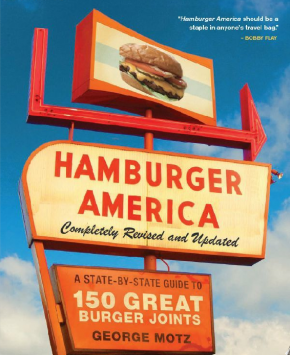
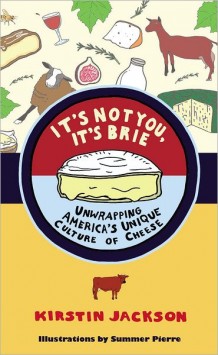
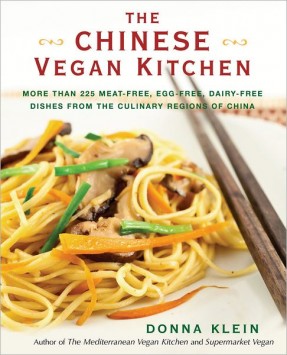
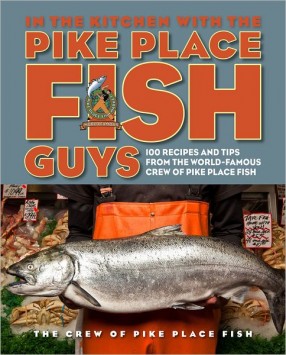
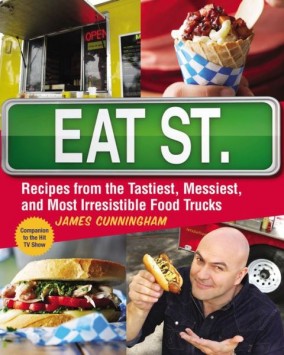
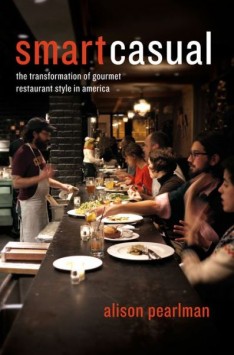
Leave a Reply